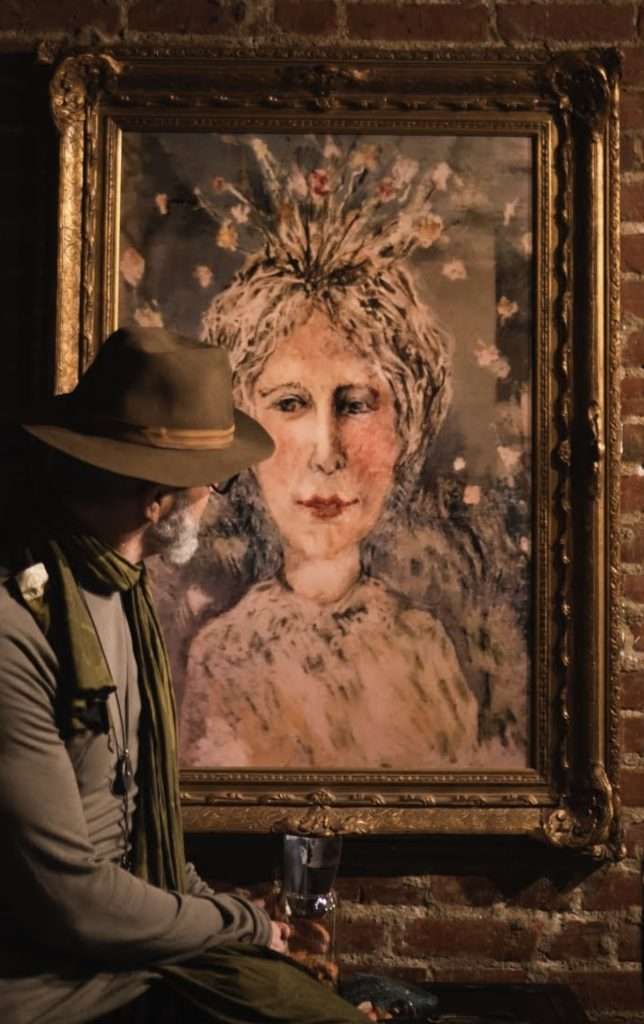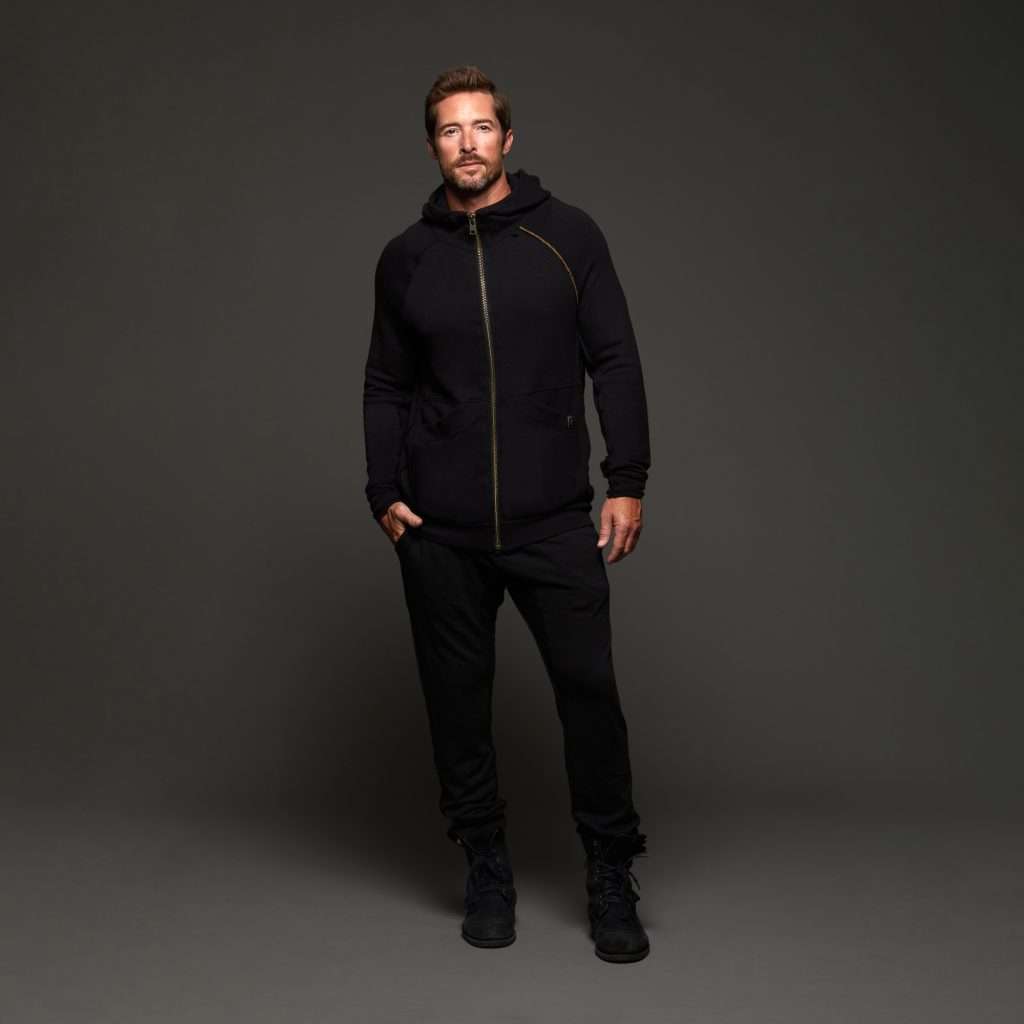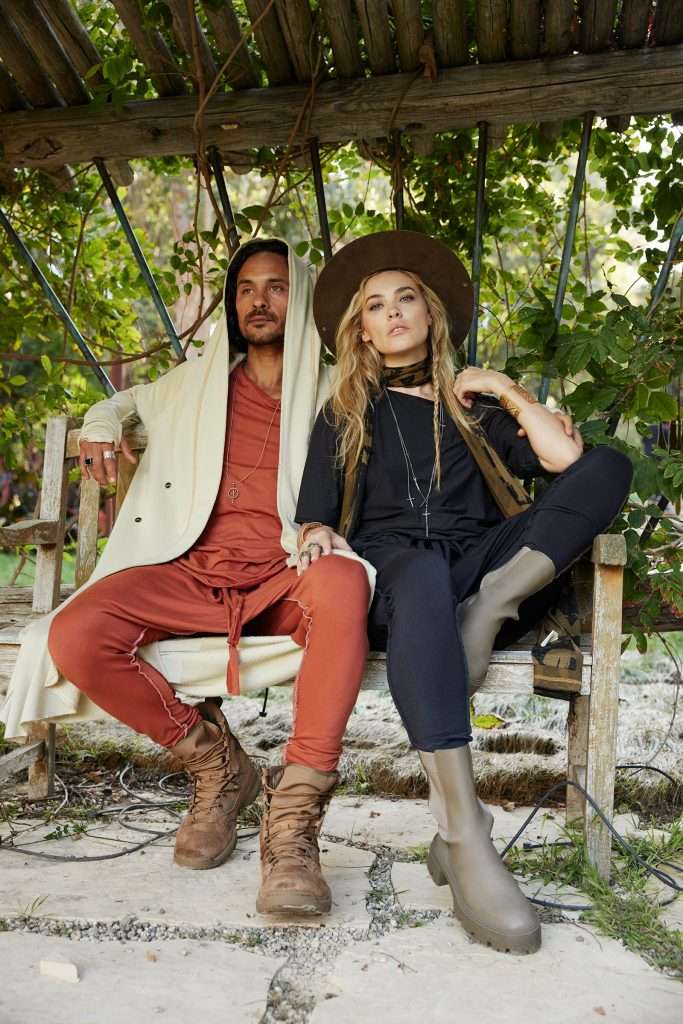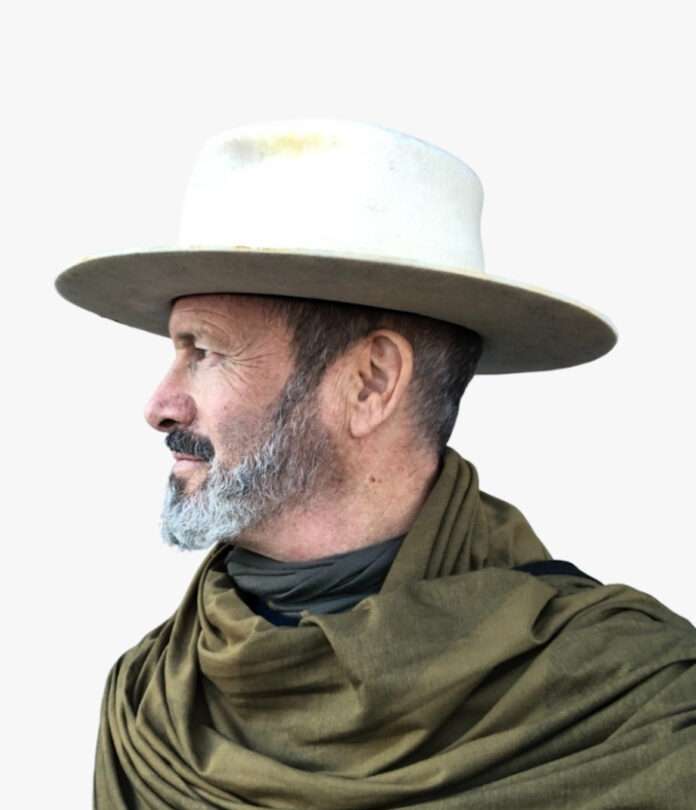For Jeff Scult, founder of One Golden Thread, clothing is more than just attire; it’s a physical embodiment of his vision — a “lovestyle” of minimalism, versatility, and a much deeper connection with nature.
It’s been less than a decade since Jeff Scult launched the Los Angeles-based clothing label One Golden Thread. But he has quickly become a distinctive force driving the fashion industry forward — not only toward new materials that are significantly better for the planet than the widespread plastic-filled fibers, but he’s also committed to repositioning how we view our relationship with the planet, the clothes we wear, and, critically, our relationships with ourselves and each other.
This ideology is the “one golden thread” that Scult says connects each of us, “we are all golden inside,” he told me during a recent lunch meet-up. He’s been spreading this message for nearly a decade. Before launching the label in 2016, Scult, then 51, traveled the world like a modern-day mystic, tying golden threads onto the wrists of willing participants and sharing a spoken word “humanifesto” as part of his own self-healing journey.
Scult presents his business like an art project — a work in progress and a dynamic extension of his own ongoing evolution. He still ties threads on wrists, an exercise he says serves as a personal reminder, not unlike the days before we could set alerts on our smartphones when people tied strings around their fingers to remember to do specific tasks. This isn’t a reminder to take out the trash, though (although it kind of is.) “Tie the golden thread around your left wrist for inner peace, your right for your inner power.” Scult says to leave the thread on until it falls off naturally. He says once the thread has left your wrist, if there is something in your life you are holding back, “it’s time to release it as golden.”
“I truly believe we are already, and always, golden inside,” he says. “This is the reminder.” (At my first meeting with Scult in September, I opted for the inner power on the right wrist. It’s still intact.)

Pivoting his career from marketing to fashion was never something he planned for, but, rather, Scult says he was driven by a deep-seated curiosity as part of his own journey of self-expression. Being “unexpressed,” Scult says, was making him unwell. And, he says, as he traveled around the world, he realized it’s a widespread affliction. “The level of which we are unwell by being unexpressed — that is a global pandemic,” he says. “And I believe that when humans are expressed, everything else softens.”
Scult would eventually also come to understand that it’s not just humans who are unwell, but the planet, too — and, critically, the fashion industry. It is the third most polluting industry on the planet; fashion is responsible for about ten percent of global greenhouse gas emissions — more than double that of both aviation and maritime emissions combined. Thirty-eight percent of microplastics in the oceans come from synthetic materials used in fast-fashion. Less than one percent of the materials used to produce clothing is recycled into new clothing, but up to 95 percent of the materials that go to landfill each year could be recycled. The sheer volume of clothing waste is staggering; according to Earth.org, the average U.S. consumer throws away more than 80 pounds of clothes every year, producing more than 11 million tons of textile waste.
Half a century ago, consumers spent more on clothing — about 12 to 14 percent of earnings per year. But they only purchased a handful of items every year. There was no fast fashion then; quality garments were designed to last years, decades even. Today, consumers spend far less on clothing — about three percent of earnings — but purchase far more (about 70 new garments per person per year). These cheap, fast fashion items don’t last more than a few wears, though. This high churn is clogging up landfills and secondary donation markets that can’t do much with the cheap materials. There are scores of other issues tied to the fashion industry like wastewater, pesticides, and toxic dyes, to name a few.

Scult was also driven by the creativity and nature leanings of his parents. His father, Mort, was an Eagle Scout and naturalist, exposing the family to rivers and camping trips before Scult could even walk. His mother, the celebrated artist Arlene Scult, died in 2020, just days before the pandemic shut the world down. Scult says her works were “allegory expressions of nature and us as one.” He wanted to do something in memory of his mother.
At the time, One Golden Thread was floundering; “we had $2,000 in sales that month.” Scult says he was dipping into his own pocket to keep his devoted “small and mighty” team afloat. When lockdown happened, he felt compelled to do something to help people stay safe, and created a face covering with a donation component in memory of his mother. For every covering sold, One Golden Thread planted a tree and donated a face covering to a person experiencing homelessness. It exploded the business. “Our business was up 10x the next month,” he says.
The face coverings were made of the same, soft material as the One Golden Thread clothing line — a proprietary blend of regenerative beech tree fibers sourced from Lenzing, the Austrian company best known for its Tencel fiber. The beech fiber is blended with what Scult says is cotton that’s in “the top one percent” of ethically sourced long-staple cotton from family-owned farms in California. A portion of each sale contributes to tree-planting initiatives, something Scult says is foundational to the label; the label has now planted more than 70,000 trees across the Amazon, Americas, and Europe.

The minimalist clothing line serves as a medium to accentuate the wearer’s inherent beauty, Scult says. It’s a reminder of something bigger — like the golden thread he’s tied on countless wrists. “Before we dress ourselves, we get to address ourselves,” Scult says. The elevated comfort wear includes joggers, henley and raglan tees, hoodies, and a hooded Jedi-esque duster wrap, among others. And with the exception of printed scarves, all come in singular color schemes. “All of the colors that I select for the label are colors of nature,’ Scult says. There are dark reds and purples, greys, greens, black, and browns. “It’s like looking at a Vermont hillside, it all goes well together aesthetically,” he says.
A commitment to — and inspiration from — the concepts of regeneration and nurturing both the earth and the individual continue to drive the brand forward. It’s come a long way from that pivotal moment before lockdown. The pandemic wear aesthetic has certainly helped. But Scult says it’s more about a shift in consciousness that is awakening consumers to another way of being. One Golden Thread will do more than $5 million in sales this year.

Scult credits the proprietary material, which he says offers a “somatic feeling” that connects to the millions of receptors on our skin. “Our skin is our largest organ and yet we’ve been treating it like a second-class citizen.” He says customers come to leave reviews on the site that are far more revealing than just ‘nice clothes.’ “They’re saying ‘I feel like this is calming my nervous system. I feel elevated. I feel alive. I feel confident.”
“I’m not making this up,” Scult says. “This is the way people express themselves and I believe all clothing should be intentional to do that.”
The label’s customers, which include celebrities like NFL quarterback Aaron Rodgers, are diehard. Scult says he hears from the community frequently about being stopped in the street by other One Golden Thread wearers. “There’s a real connection,” he says. It’s a mutual understanding about intention that’s different than seeing someone in the same pair of Nikes. It’s an allegiance not uncommon in the sports world when fans in another city see others wearing their team jerseys or hats and stop to chat, shake hands, or simply offer a nod of respect.
One Golden Thread will launch its first women-inspired collection next year, although Scult says all of the clothes are designed to defy gender. Home goods are also in the works, and Scult says he aims to open a flagship location, something similar to his back house in Venice that doubles as his by-appointment atelier. Like everything else at One Golden Thread, the vision is more than the sum of its parts; Scult welcomes people to come together and connect in their shared visions; he amplifies artists and performances, talks, and records sessions for his new podcast, “Drops of Gold.”
“It’s less about ‘yes, you can buy the clothes here’, and more about just coming into the One Golden Thread experience,” he says. “Let’s come together and share our golden gifts with the world.”
Shop One Golden Thread here.
Related on Ethos:


